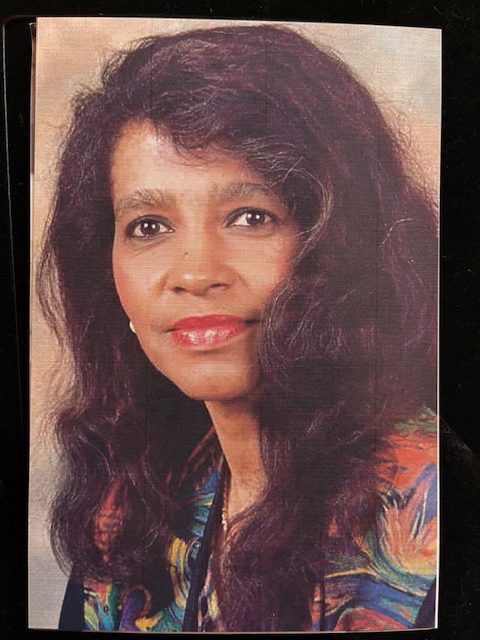The Clemson University College of Education mourns the loss of Dr. Margaree Seawright Crosby, an alumna of the College who later went on to serve as the first tenured Black female professor in the College. Dr. Crosby, formerly of Taylors, South Carolina, passed away Friday, November 8 at age 82.
Dr. Crosby had already made a name for herself as a civil rights leader before even attending Clemson University. In 1960, she made her first mark in the fight for civil rights and equality as one of the “Greenville Eight,” a group of students that included Reverend Jesse Jackson. The group’s protests and actions resulted in the desegregation of the Greenville County Public Library. Her courage and activism reflected her commitment to social change and her belief in the importance of fighting for what was right.
In 1963, Dr. Crosby graduated from South Carolina State College, where she earned a bachelor’s degree in elementary education. In 1973, she earned a master’s degree in education in reading from Clemson University, and later an Ed.D. specializing in reading and elementary education from the University of Massachusetts at Amherst.
She began working at Clemson University in 1977 as an assistant professor of reading and language arts, later becoming a full professor. Dr. Crosby had a distinguished career as an educator, shaping the minds of countless students with her passion for learning. Her academic journey was a testament to her determination and belief in the transformative power of education. Dr. Crosby retired in 1985 as professor emerita of Clemson University.

While at South Carolina State College, Dr. Crosby met her soulmate, the late Dr. Willis Herman Crosby Jr., who affectionately called her “Ree.” They were happily married for almost 60 years until he passed away in 2022. In 1984, she was diagnosed with ovarian cancer and in 1988 with breast cancer, which drove her to become a national spokesperson for breast cancer awareness. Although she suffered from debilitating chronic migraines since the year 2000, she also fought Parkinson’s Disease since 2019.
In her personal testimony, “There Is Still Life After Cancer,” Dr. Crosby revealed a philosophy that sustained her throughout her life. That philosophy was to help others and never to give up though obstacles may seem impossible to overcome. She did not let adversities infringe on her personal life or deter her from educating and helping others.
Dr. Crosby’s life was filled with many ground-breaking accomplishments. She was the first woman board member to serve in the over 80-year history of the Greenville Memorial Hospital System, and she was also South Carolina’s first Women’s Achievement Award recipient, in addition to Who’s Who in American Education—all milestones that are a testament to her leadership and commitment.

Otis Pickett, Clemson University historian, draws parallels between the life of Dr. Crosby and Harvey Gantt, the first Black student admitted to Clemson University. Whereas Gantt changed three centuries of history in one day, Dr. Crosby continued his legacy and paved the way not just for Black students, but Black professors.
A loving family survived her, one daughter, Michelle (Kenneth) Beasley of Simpsonville; two sons, Anthony Crosby of Atlanta, Georgia, and Erich (Tracy) Garrett of Greenville; one sister, Betty Seawright Doyley of Greenville; eight grandchildren, Lauren Alexis Beasley, Peyton Rockefeller Beasley, Anjali Bianca Crosby, Avi Bernard Crosby, Bri Young, Tyrell Young, Domonique Garrett and Adrian Mansell; one great-grandchild, Cairo Young; a host of nieces, nephews, colleagues, former students and countless dear friends whose lives she touched with her wisdom, warmth and unwavering commitment to making the world a better place.
Dr. Crosby’s life reminds us of the power of education, the importance of community and the need to fight for what is right and just. Her legacy will continue to inspire future generations.
Get in touch and we will connect you with the author or another expert.
Or email us at news@clemson.edu

